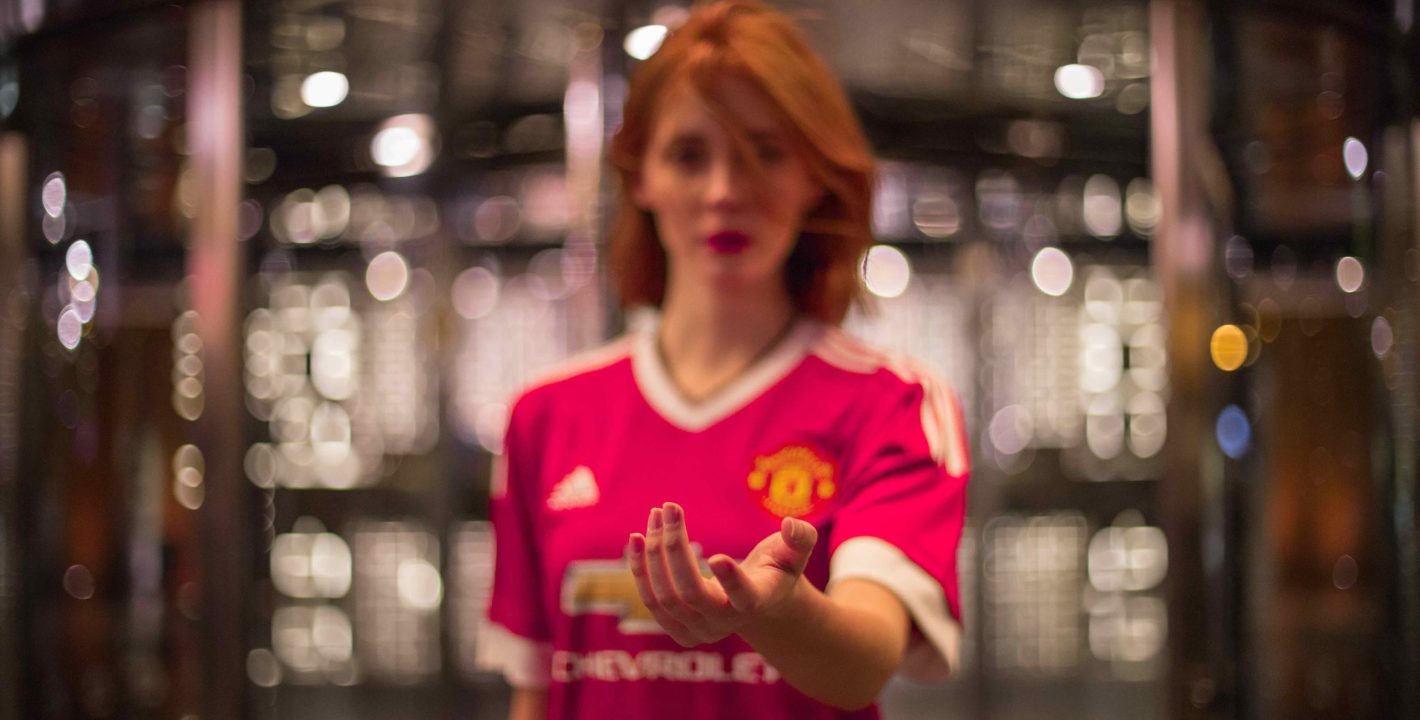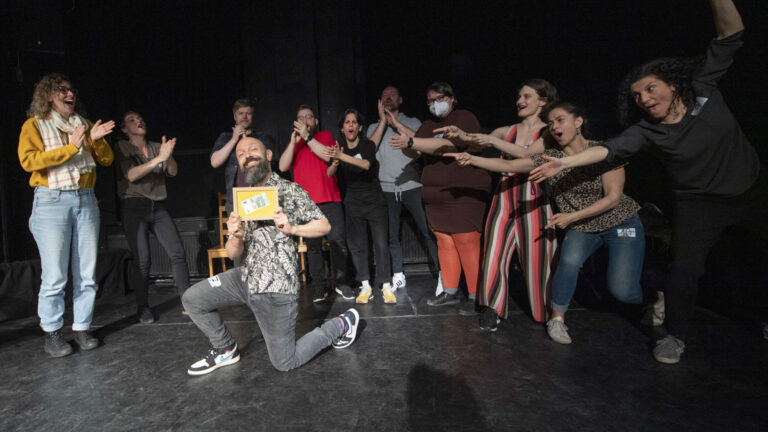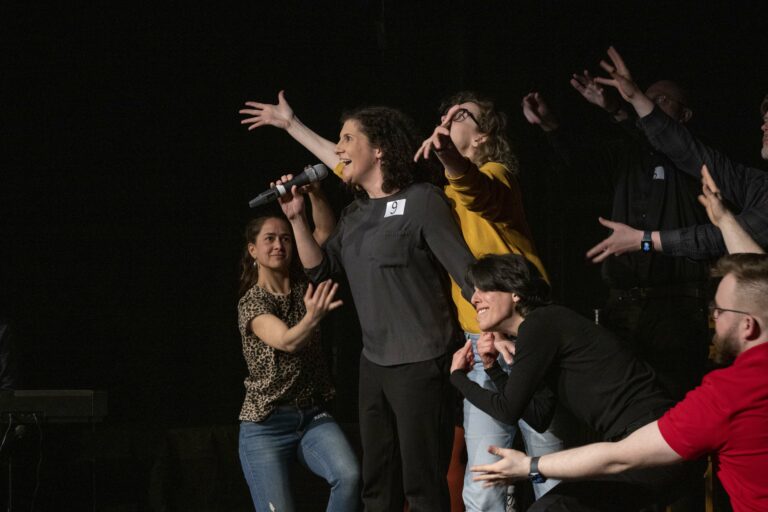Accepting offers is one of the basic principles of improvised theatre. However, if you think that this is a topic (only) for beginners, you are mistaken. I am convinced that it needs a lot of practical training and that it is a challenge and even a life task to become really better at it. Why is that so?
Well, in general plans are a good thing. We don’t follow every spontaneous impulse, don’t drink another coffee, but pick up the children from the kindergarten as planned. We don’t immediately book the dream holiday when the TV commercial is on, but finish the report which has to be handed in the next day. Plans give us security and structure and prevent us from reacting immediately to all not-so-important impulses. That is why our brain is first of all designed not to reject a plan immediately and to accept the unexpected without further ado. However, plans often stand in our way when we adjust to new situations.
But… the magic of improvisational theatre (unfortunately) arises from the fact that we (have to) let go of our plans again and again. We go on stage to be the wicked witch and are redefined by our colleagues as the good fairy. We take a mimed ring out of our pocket to propose to the beloved one, but he jumps back and shouts: “Put the gun away.
In such situations there is a tendency to stick to one’s own idea. That usually sounds like, “No, I’m the wicked witch.” If the colleague can let go of their idea, there might be the answer: “Oh, I didn’t recognize you right away.” (If not, there will be a long argument about who is right.) So I have successfully pushed my idea through, but what has been gained? The winner is my need for security … and my ego.
The first one is usually easier to identify. It is about the moment in which we are seen in all our vulnerability. As audience we love that. But as actors, our entire internal security system sounds the alarm. The task now is to get to know, endure and maybe even love this moment. Not an easy task? Nothing against the second winner of sticking to your own idea: your own ego.
If I manage to bring my own idea into the scene, I have the good feeling of having been involved, of being visible. If my colleague pickes up my idea as well, it feels extremely good for my ego. It is like a caress for our self-esteem: “I am creative”, “I have good ideas”, “I am perceived”. The problem is that I do not give my counterpart exactly this feeling. So instead of concentrating on improvisation and the joint scene, I get a caress for my self-esteem. Understanding that and not attaching self-esteem to it, is the first step to banish my ego from the stage. To achieve this completely: a life-task!
How can I now become better at accepting?
The first step is to recognize the situations in which I expose my vulnerability and attach my self-esteem to my ideas. Even if I continue to cling to my ideas and cannot yet let go of them completely, I develop an awareness that and when I do so. The first step towards change is done.
Then, in these situations – not only on stage – I can consciously renounce to keep control and get involved.
If everything goes well, I then experience that it can be just as satisfying for my self-esteem that I have the ability to let go and to be responsive to my counterpart … and thus perhaps no longer have to attach my ego to my ideas.
You can practice accepting offers all the time. What if I won’t just go shopping, but I’ll take a trip to the playground, just as my daughter would like. But the safest way for practise is probaly in the protected setting of an impro-workshop. If I accept the fact that I didn’t want to marry my partners, but rather shoot them, the consequences are a changed scene and, if in doubt, not a whining child in the sandbox who doesn’t feel like shopping anymore.
A side note:
Unfortunately, the acceptance of an idea often fails because of one step before: noticing that my partner has made an offer. To be attentive enough to see and hear and fully take in my whole environment. We often describe this by “being in the moment”. But this is once again a topic on its own…



